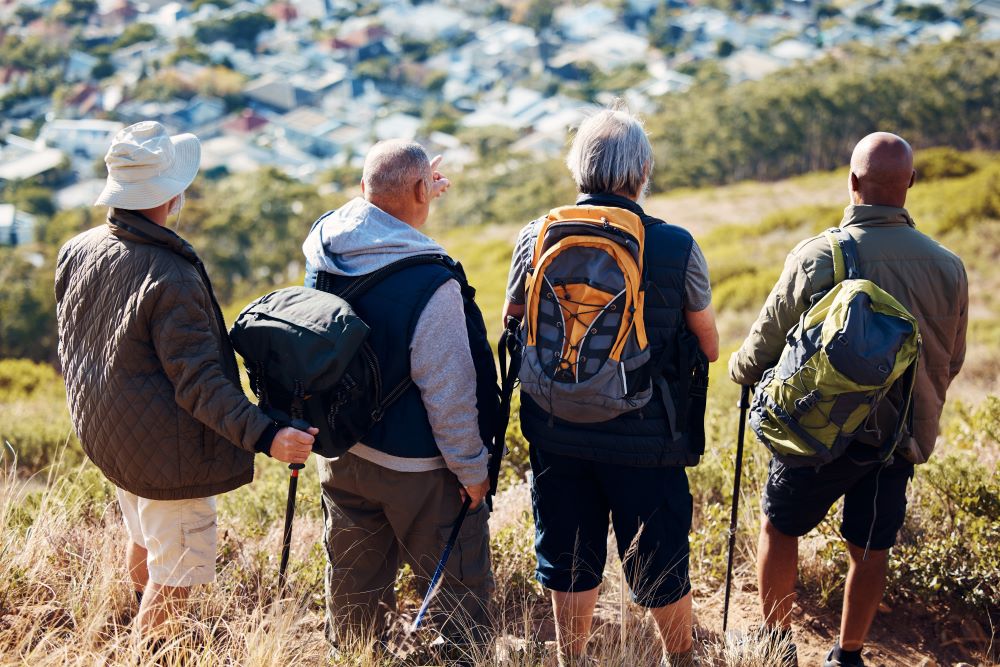Tourism and the Senior Market

With the first wave of baby boomers now well into retirement age, the senior market has become one of the fastest-growing areas of tourism. From a tourism perspective, this market is really three markets: what we may call the “Young Seniors,” the “Middle Seniors,” and the “Older Seniors.”
Young Seniors are people born from 1946 to 1960. Although many of these people are now retired, many of these people are still highly active, and some, such as the author, are still working. Many have now paid off their home mortgages, see their children as self-sufficient, and have minimal debt and financial obligations. Because they now have added expendable income, less home responsibilities, and relatively good health, they are prime candidates to travel.
The Middle Senior market is generally considered people who were born from 1930 to1945. These are the pre-baby-boomers. Almost all of the people falling into this category are now retired. Many tend to spend a greater amount of time visiting family and friends, and have slightly higher medical costs, but still desire to travel. As in the case of all senior travelers, this group places a great deal of emphasis on personal and group travel safety and security.
The third group, which we call the “Old Seniors,” are those people born before 1930. Many of these people are less likely to travel, but when they do travel often seek both security and personalized service. Many in this group have medical problems and require special attention.
Despite the fact that the Senior Market group has three sub-groupings, they share enough common characteristics to be treated as a single cohort. Although much of this month’s Tourism Tidbits uses US data, the general trends toward increased senior travel and a strong senior market hold true for most developed and developing nations.
Here are some valuable pieces of data regarding the Senior Market. As it is in much of the developed world, the “Young Senior” market is the largest and wealthiest niche market is the USA. According to the most recent Survey of Consumer Finances released by the Federal Reserve in 2022, the average net worth of American seniors between the ages of 64-75 is around $1.7 million, compared with a median net worth of around $410,000. For those 75 and older, the average net worth is estimated to be just under $1.65 million, with a median net worth of just under $370,000. Although these figures refer to the United States, the economic picture is approximately the same (adjusting to the size of the country) for the other developed nations and many of the developing nations. It should also be stated as a word of caution that much of their net worth is due to stock and bond prices and privately owned property such as homes. The figures do not consider inflation.
Tourism officials would do well to remember that senior citizens now live longer than did their parents, tend to be more active, and travel more. By 2030 seniors will control a large percentage of the world’s assets and will tend to both spend more and to demand more.
T&M offers several ideas and suggestions on how to deal with the senior market and prepare for its economic impact on both travel and tourism.
Seniors are not only the developed world’s wealthiest group, but they are also the most demanding. The parents of today’s upcoming senior citizens tended to spoil them as children. This means that senior citizens are not afraid to demand what they want and complain until they get it. In addition, the Young Seniors come out of an age of political activism. Those organizations, businesses and institutions that provide good customer service have a great opportunity to thrive. Those who do not may face economic destruction and lawsuits. This principle is true not only for businesses but also for governmental agencies.
Tourism Surety is important to senior travelers. As we age, we tend to become more psychocentric in our travel habits and demands. Especially in an age of terrorism and in places of high crime, seniors will demand good security. Those cities that have developed TOPPs (tourism-oriented policing/protection services) units will have an added marketing advantage. In contrast, those cities that have not established such units may find that both their citizens and businesspeople may ask some very hard questions as these locales begin to lose travel and tourism market share.
Seniors tend to experience higher levels of frustration. This frustration manifests itself in a lack of patience, refusal to read small print, and almost zero tolerance for poor service. Tourism locales that wish to capture the Senior Market need to review not only their physical structures (for example, are they accessible to everyone?) but also the size of print that they use in information brochures and signage and the level of customer service and visitor protection offered.
Many Seniors manifest tendencies to visit and even move toward quieter and less congested areas. This migration toward “livable outer fringes” means that tourism facilities can no longer be centered just in the principal cities. Smart tourism bureaus will know how to take advantage of a dispersed tourism market and attract people who shun the inner cities due to perceived high crime rates, poor customer service, and difficult parking conditions.
Smart tourism bureaus and businesses know that this is the time to develop a senior task force. This senior tourism task force should keep abreast of the newest travel trends and demographic changes. For example, many tourism professionals are under the mistaken notion that the trend of traveling (or moving) to warmer states will continue well into the future. Recent data, however, suggests that there is now a reverse flow as aging seniors seek to be closer to children, family, and friends. This reverse migration now means that those tourism entities located in colder climates will have many new business opportunities. Your senior tourism task force then should be composed of a wide range of experts, from a marketing expert to a tourism security expert, from health experts to food safety and food diet experts, from transportation specialists to representatives of the hotel and restaurant industries.
The lack of good and dependable airline service will become a major difficulty for the senior tourism industry. Many airlines have switched to smaller and less comfortable aircraft. The trend toward regional jet commuter planes, along with increased security hassles at airports, has made travel especially hard on senior travelers. Many of these potential travelers are now shying away from air travel and long-range travel and instead seeking travel opportunities closer to home. Regional marketing and the use of city personnel as marketing agents may pay off in increased tax revenue and new business opportunities.
Dr. Peter E. Tarlow is the President of Tourism & More, Inc., a founder of the Texas chapter of TTRA, and a popular author and speaker on tourism. Tarlow is a specialist in the areas of the sociology of tourism, economic development, tourism safety and security. Tarlow speaks at governors’ and state conferences on tourism and conducts seminars throughout the world and for numerous agencies and universities.
Reprinted with permission from Travel & More, Inc., with minor editing by ABA for clarity.
